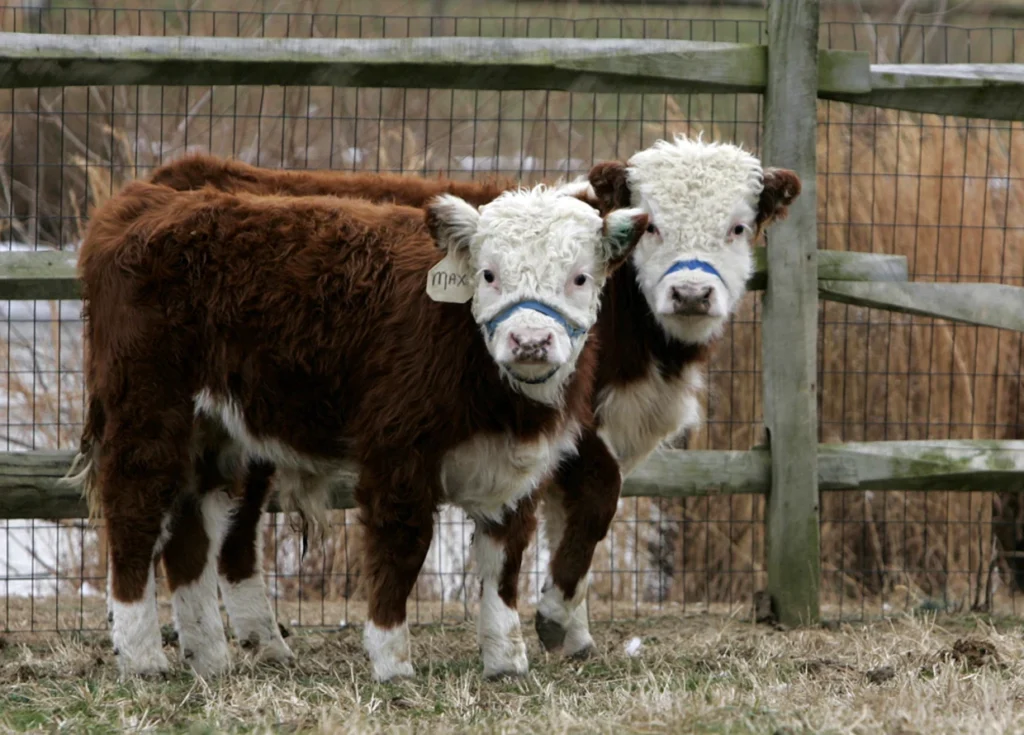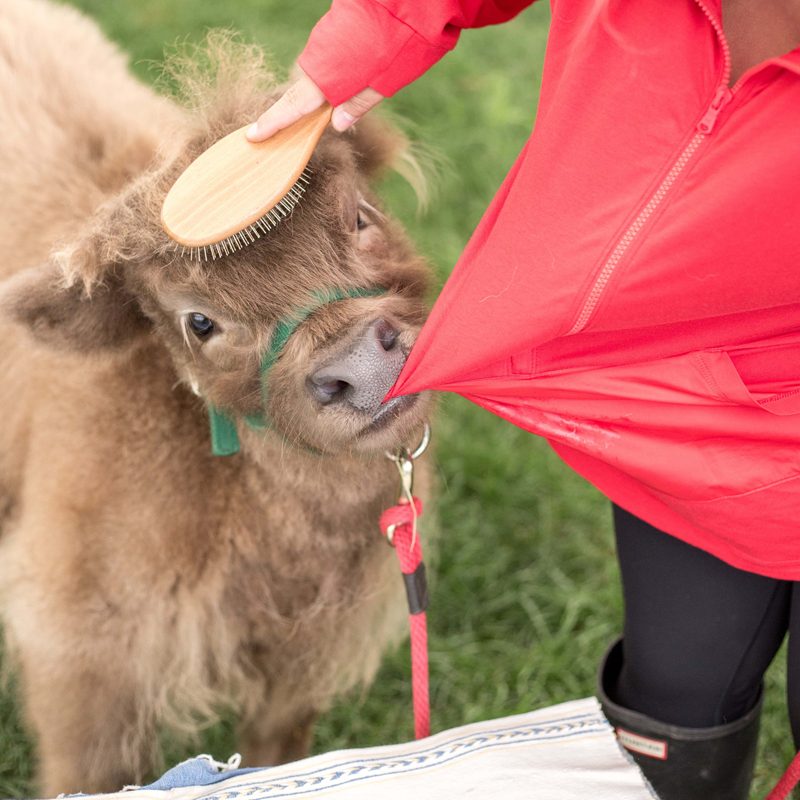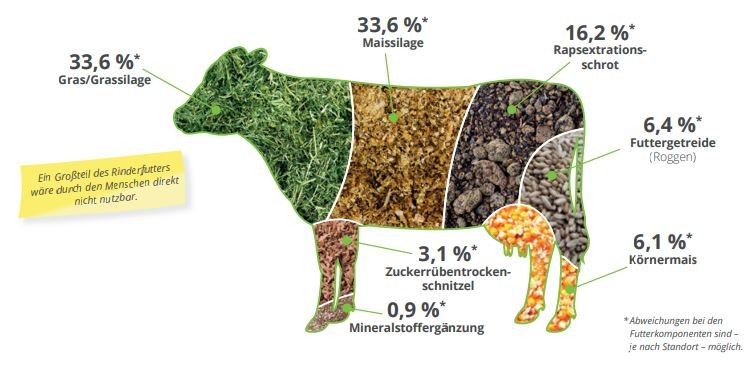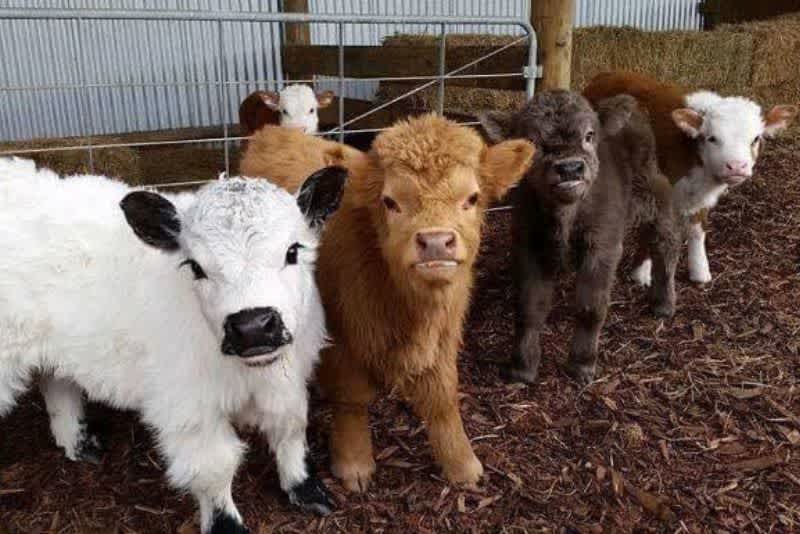
Mini cows are a popular addition to homesteads and backyard farms. They are easy to care for, and they can provide a good source of protein. They also require less land than full-sized cattle.
They are easier to handle, which makes them ideal for someone new to livestock. They are also much safer for children.
They are easy to care for

Although mini cows are smaller than their full-sized counterparts, they still need to be cared for properly. They need room to roam and enough quality grazing space to thrive. They also require routine care, including deworming treatments and vaccinations from a large-animal vet. Additionally, they need daily brushing and a fresh supply of water to maintain their health and appearance.
In addition to these basic requirements, mini cows need a lot of attention from their owners. They often prefer to be a part of a herd and need companionship. They are highly social animals and will respond positively to regular contact with people. Moreover, they can also teach children about responsibility and the agricultural aspect of life.
If you are thinking about buying a miniature cow, make sure to consider your lifestyle and budget. Mini cattle live up to 25 years and can be expensive to maintain. If you don’t have the resources to keep one, consider a shelter that specializes in small animals instead of an impulse purchase from a pet store or breeder.
Remember that miniature cattle are herd animals, and it is a good idea to buy at least two to provide each other with companionship and protection. You should also separate male and female cattle to prevent unwanted pregnancies. Also, if you plan to hand milk your cow, it is important to know that they have very small teats. If you have larger hands, you may want to consider using a pump-style milker.
They are a good source of protein

Mini cows are becoming increasingly popular as a way to raise pasture protein. They require less feed than traditional cattle, and are able to provide high-quality milk and meat in small quantities. These animals are also being used as 4H and FFA projects, which are a great opportunity for kids who may not have the space to care for larger cattle. They also make great pets and can be a good source of income.
Despite their small size, miniature cows are intelligent and can recognize faces and voices. They can be spooked easily, so it is important to keep them calm and secure. They should be given plenty of room to graze and exercise, and must have access to fresh water at all times.
Like larger cattle, miniature cows should be fed a quality diet of hay and grain supplements. They should also be kept in groups to prevent loneliness and boredom. They can be difficult to breed, so it is important to choose a reputable breeder. Also, it is important to check for genetic abnormalities such as the dwarf gene or chondro disease.
Because they are so small, it can be hard to tell if a mini cow has health problems. It is important to find a responsible breeder who is willing to offer a health guarantee. This will give you peace of mind that you are getting a healthy animal.
They are a good pet
Although they may not be as cute as puppies or dogs, mini cows can still make excellent pets. They are gentle, easy to care for and very social creatures. Additionally, they require less land and feed than standard size cows. Many of these small cows are also able to produce milk, making them ideal for people who want to add dairy to their diet but do not have the space or resources of full-size cattle. However, owners should be aware that these cows will eventually grow up into adulthood and can weigh 400 pounds or more. They also need to have plenty of room to graze and exercise, which makes them best suited for homesteads or rural areas.
Although these cows are very adorable, they should be treated with the same care as any other pet. They are intelligent animals that need to be given the time and attention they deserve. They also need to be kept with a herd or other animals, as they are herd animals and prefer company.
While miniature cows are great companions, they should not be exploited as mere toys for children. Doing so teaches children that living, feeling beings are objects to be bought and discarded when they no longer have the initial novelty factor. It is also a terrible message to send to impressionable young minds, especially in this age of TikTok and social media. Instead, children should be encouraged to learn about agriculture and livestock and the joy that can come from a close relationship with the earth and its creatures.
They are a good source of income

There is a growing interest in raising miniature cattle, especially among homesteaders and those interested in self-sufficiency. These animals are easy to raise and provide a valuable source of milk and meat. They also make good companions for children and adults. They are gentle and docile, providing unwavering loyalty to their owners. Moreover, these animals can help increase the income of farmers. However, it is important to know the specific needs of mini cows before investing in them.
Despite the popularity of the miniature cow, many people do not understand the breed or how to care for them. Some believe that these small cattle are simply stunted full-size cows. This is a misconception, as miniature cattle are the result of generations of selective breeding and careful choice of genetics to reduce size while maintaining breed qualities.
Some people choose to keep miniature cows as pets. These are great animals for children, as they are easy to train and tend to be calm. They are also very tolerant of heat and humidity. However, it is essential to ensure that the area you select for your herd is well fenced. It is also a good idea to purchase mini cows from a reputable breeder.
Keeping a miniature herd of dairy or beef cattle is a good way to get a taste of the country life. It requires less land than regular cattle and will save you money on feed. They also produce less waste than their larger counterparts. They also do much less damage to pastures and fencing than their bigger cousins.
